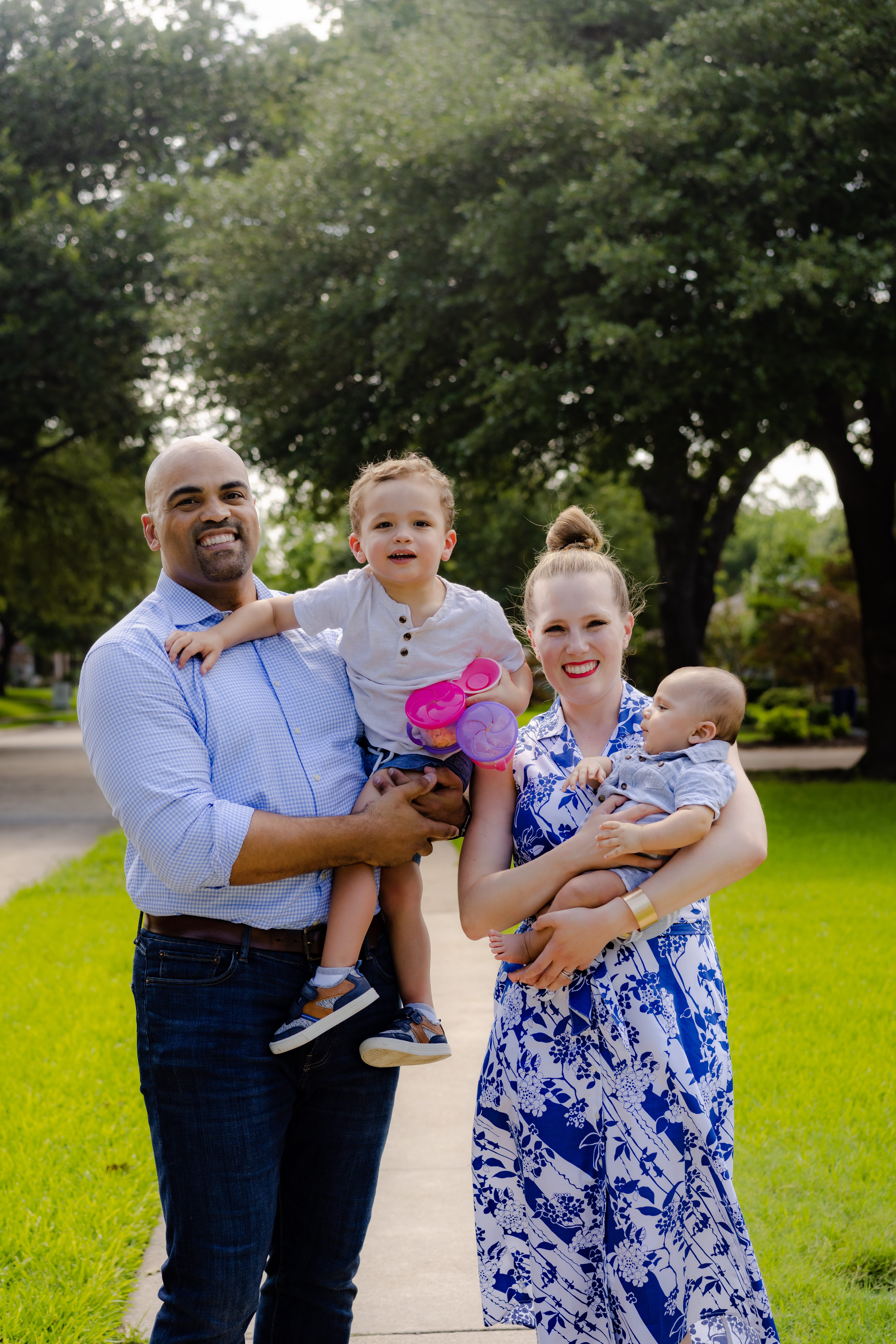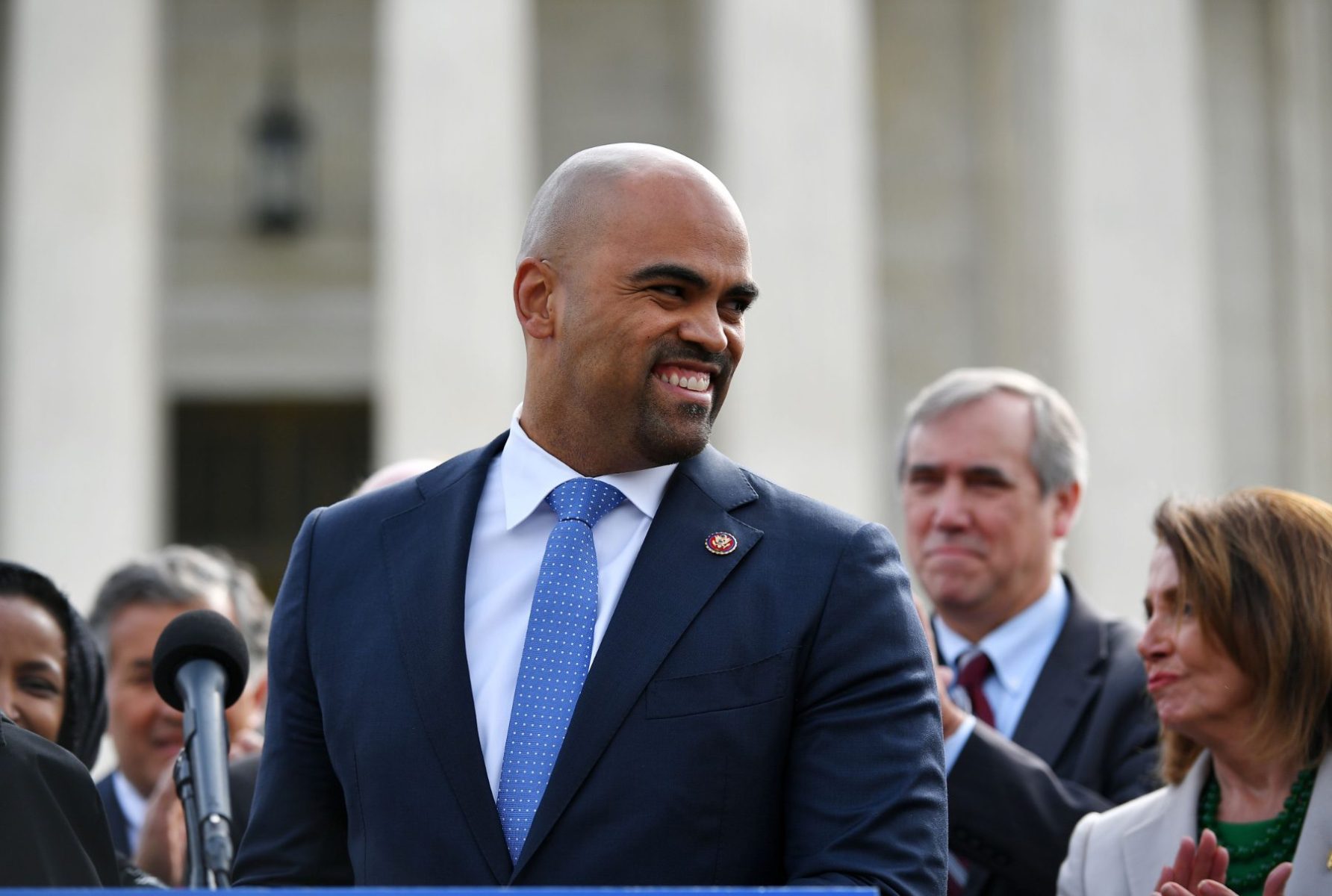In 2019, Rep. Colin Allred became the first member of Congress in its 232-year history to take paternity leave, at least publicly. He was off two weeks. In late March, the Texas Democrat took leave again, that time for one month after the birth of his second son.
In the time between the births of his sons, a rapid evolution has taken place, altering how America views paid family leave. Cast aside as a “woman’s issue,” pushes for a federal paid leave policy in the United States have stalled for decades as every other industrialized nation has moved forward. In 2015, the United Kingdom expanded its existing paid leave policy by making up to 37 fully paid weeks available for parents to share between them as they choose. Norway has been offering leave specifically for fathers for almost 30 years, and Sweden has been doing it for 47.
Many of those programs still enforce traditional gender norms — France recently increased its paternity leave to 28 days, yet mothers get 16 weeks — but more countries have been moving toward gender neutral policies. Finland, for example, will begin offering almost seven months of leave to each parent, regardless of gender. The pregnant parent will get an additional month of pregnancy allowance.
All the while, the United States has remained immobile until quite recently. What changed, experts said, is that men have started to buy in.
When Allred took his first leave for the birth of his eldest son, Jordan, he was surprised by how many men reached out to him to tell him it was something they wanted to emulate. They also reached out to his wife, attorney Alexandra Eber, to express “a feeling of relief that somebody is doing it before them.”
“A lot of them want to take that leave, and they feel pressure at work to go back too quickly or to go back even when they have a generous leave policy, to take less than their employer technically allows,” Eber said. “To have someone that has a platform saying, ‘This is important, I’m going to take a real leave,’ creates space for them to do it, too.”
Eber also said it helped her. Already, the two divided the household chores — she cooks dinner, he vacuums and does the dishes — but his presence early in his sons’ lives helped him be involved in the little things, like knowing where the extra diapers are and how the babies liked to be rocked to sleep. All of those things add up, she said, so it’s not just one parent who is expected to take the lead on care.
When Allred took his second leave this year for the birth of his son Cameron — one month fully off and another with some reduced hours — the landscape was different. Several other men in Congress had also taken leave, including Rep. Seth Moulton, a Massachusetts Democrat who has taken two parental leaves in the past three years. (Congress doesn’t have an official paid leave policy, but members can set their own for their staff. Allred offers staff 12 weeks of paid leave).
Reddit founder Alexis Ohanian had also become a vocal advocate, writing in The New York Times in 2019 about his experience taking parental leave following the birth of his and Serena Williams’ daughter, Olympia, in 2017. And President Joe Biden campaigned on the promise of 12 weeks of paid leave for parents, later including it in a proposed economic package aimed at working families announced in late April.
And, of course, there was the pandemic, which has left so many facets of American life irreversibly altered. Care became extremely visible for parents who worked from home, and the sheer magnitude of tasks that go into caring for young children became more apparent. (It’s not clear, however, that the division of that labor is now more equally dispersed among parents, according to studies that have shown moms still taking on the majority of the child care).
Put together with a new wave of fathers taking it, paid leave has a new degree of visibility.
Brad Harrington, the executive director and a research professor at the Boston College Center for Work and Family who has studied men’s use of parental leave for the past decade, said the fast clip of change in the past few years can absolutely be attributed to men taking part in the conversation.
Women and people of other gender minorities have so often been at the center of the fight on paid parental leave — to ensure policies are both robust and use an inclusive definition of family that includes LGBTQ+ couples, transgender and nonbinary folks. A culture of undervaluing caretakers, typically women, has meant that paid leave was treated as an afterthought, an added benefit, something nice to have that would help some, but not all.
Dismantling that falsehood has taken years. A decade ago, Harrington said no one was talking about gender-neutral parental leave. In his 2011 study of parents, only one in 20 fathers of those surveyed took more than two weeks off when their most recent child was born. About 75 percent took less than a week. The study surveyed fathers in four Fortune 500 companies where most earned more than $75,000.

When he conducted the study again in 2014, most of the partner companies surveyed didn’t offer gender neutral leave. By 2019, about half of them did. In the most recent study surveying 1,400 dads in high-paying jobs, about 62 percent said they took the full leave available to them — typically six to 16 weeks.
What changed, Harrington said, is “this growing appreciation that if you want working women to succeed, you better really embrace the role that men play in caregiving.” The more companies that tried it, the more that followed in line. One large employer, which Harrington didn’t name specifically, added a gender-neutral paid leave policy and admitted to researchers that it assumed most men wouldn’t take it — then most did. That altered how companies thought about the policy, too.
“If you say, ‘Oh we want women to advance and we want to give them rapid development and we want to see them take on more responsibility,’ and you stop there and you don’t say anything about working dads — then basically you’re saying we want women to have it all and to do it at all,” Harrington said.
Paid leave is a policy that promotes equity at work and at home. An inclusive and gender-neutral paid leave policy can help push to normalize broader definitions of family in other areas of policy, and help LGBTQ+ people have access to care from trusted sources.
“I don’t think there’s any policy that organizations or the government could offer that would be more conspicuously pro-gender equality than parental leave,” Harrington said.
When men are involved early in their children’s lives, it also produces benefits for partners, largely women, who are more likely to face an unofficial penalty in the workplace when they take time off to care for children.
It matters, Eber said, if men are taking the type of parental leave that women are typically expected to take.
“We’re all deciding together that we have to be able to take time for new children and also have a full career,” Eber said.
Biden, who became a single father to two sons in his 30s when his wife was killed in a car accident, initially proposed a plan that would provide parents, regardless of gender, 12 weeks of paid family leave that would phase in over a decade. The leave would be on a sliding scale so that the lowest wage workers were paid up to 80 percent of their salaries. At minimum, workers would be reimbursed for two-thirds of their pay up to a maximum of $4,000 a month.
Now, it’s likely that some form of that plan will make it into a package Congress is considering passing through a mechanism that would only require 50 votes in the evenly-split Senate to pass. But advocates are pushing for a much faster phase-in, and say it’s unlikely a 10-year rollout will be in the final version.
Rep. Richard Neal, the chairman of the House’s Ways and Means Committee, has proposed his own version that would go into effect in 2023 with 12 weeks of leave. Most workers would see two-thirds of their wages covered.
Advocates are hoping to see a package that includes universal paid leave pass in the fall, said Dawn Huckelbridge, the director of Paid Leave for All, a national advocacy organization pushing for federal paid family and medical leave.
“We are really feeling optimistic that it is going to be included in the budget resolution. It’s clearly been made a priority by Congress. We do think there is a path,” she said.
Huckelbridge stressed that the pandemic made passing such legislation — and getting it to reach as many people as possible — all the more important.
“The lens that COVID also gave us is that we are more interconnected than we are willing to admit,” she said. “Even if we have paid leave, if the server at the restaurant does not, or the Amazon delivery driver does not, or the nurse in the hospital where we are being treated does not, — the protections we do or not do not have impact other people and then, by extension, whole economies.”
Still, questions remain about how equalizing the policy is if it can’t offer full wages, particularly to low-wage workers who are less likely to even take leave if it means losing pay. In Harrington’s study, fathers were more likely to take leave if employers covered between 70 and 90 percent of their pay.
That’s especially true for low-wage workers, where the likelihood of men taking paid leave is far less because their partners are already likely taking unpaid leave. About 95 percent of the lowest paid workers in the country — largely women of color — don’t have access to any family leave at all.
That’s been frustrating for Allred, who has tried to drum up support for paid leave policies, but hasn’t seen much appetite to discuss how a national paid leave policy would help Americans who don’t get any assistance from their employers.
“It’s a discussion that most people don’t want to have, which is that on the lower end of the wage workforce, there’s not really the willingness to see folks in that category have this much leave,” Allred said.
It’s a concession, advocates admitted, that the policies proposed so far don’t fully cover the lowest paid Americans. Opponents of paid leave have argued it would be a significant cost to implement a program. Biden’s proposal, for instance, would cost $225 billion over a decade — and that’s with 12 weeks and a slow phase-in. Republicans who have previously supported the measure have advocated for a tax credit structure instead.
But advocates want to seize the moment to begin offering something, imperfect as it may be. Business groups, including the U.S. Chamber of Commerce, have recently come out in support of federal paid leave, but with caveats, including ensuring a national law would preempt state and local policies — nine states have their own paid leave laws — in order to streamline requirements for companies that operate across state lines. The Biden plan doesn’t have that preemption.
Setting the United States on the path of offering leave would change something fundamental about U.S. corporate culture, said Sherry Leiwant, co-president of A Better Balance, an organization of attorneys advocating for gender equity in the workplace.
“At least it’s a first step in telling people, ‘Look, this is something that we as a nation believe in. This is something that we as a nation are paying for. And it’s there for you to take and you’re really hurting your family if you don’t take it,’” Leiwant said.








